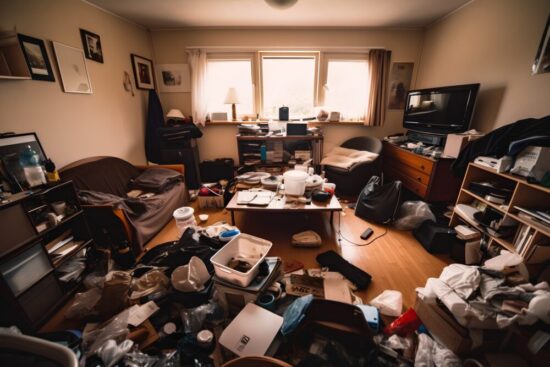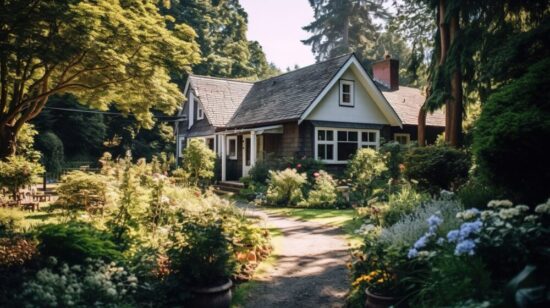Part of the American Dream is to buy a home, pay it off before retirement, and live in it until you’re no longer able to live independently or die. But that’s not always the best path for everyone. We recently bought our 2,000-square-foot home from a couple in their 60s who were moving to a rental. Turns out they’re on to something. They are just one set of retirees among many who have discovered 7 reasons to rent a home in retirement.
Considerations When Selling Your Home
If you’d like to sell your home and move to a rental, you’ll need to consider a few negatives you’ll face:
Capital Gains Taxes
Depending on several factors, including what price you paid for the house and sold it for and your marital status and income, you may need to pay capital gains taxes on your home. You’ll want to consult with a tax accountant to minimize the amount you must pay.
Increasing Rent
When you rent, you may be subject to frequent rent increases. While a rent increase may not matter much from one year to the next, if you will rent for the next twenty to twenty-five years, the increases in rent over time could be significant.
However, when evaluating this expense, remember that if you lived in a paid-off home, you would still face property tax increases, so your expenses in your paid-off home are not fixed, either.
7 Reasons to Rent a Home in Retirement
While there are some cons to selling your home and living in a rental, there are many more positives.
No Property Taxes
For some, property taxes are reasonable. However, for many homeowners in the United States, especially on the East or West Coast and in major cities, property taxes can cost ten thousand dollars or more per year. Selling your home and moving to a rental relieves you of this significant expense.
No Repair Costs
Likewise, home repairs can be costly. Even if your house is paid for, you still must maintain that home. Unfortunately, many senior citizens cannot make the repairs or can’t afford them, especially if they are living on a fixed income.
When we were house hunting, we found many homes that older people or their children were selling. Often these homes’ interior decorations were stuck in time. (One house was covered in cream wallpaper with gold felt swirls throughout.)
But beyond outdated interior design, these houses were run down—overgrown backyards, fences that were askew and needed repair, and basements that smelled because the owner couldn’t easily get downstairs to find and fix problems.
However, you are not responsible for costly upkeep and maintenance if you live in a rental. If you have a problem with your home, you call maintenance, and the proper expert comes in to make the repairs.
No Yard Maintenance
Spacious yards that were easy to maintain in a homeowner’s youth or middle age can become overwhelming as the individual ages. You may have trouble bending to tend to flower gardens or pick weeds. Mowing the lawn may be exhausting now. You’ll need to hire a lawn care service or find a way to maintain your yard on your own, which isn’t easy as you age.
Don’t Have to Worry about a Home Losing Value
We’re conditioned to think homes go up in value, but that’s not always the case. Over the decades of home ownership, a once trendy neighborhood may become outdated and lose resale value. Or, as global warming continues to affect us, an area of the country may become less desirable because it’s more prone to expensive natural disasters or a water shortage.
If you sell your home, you no longer have to worry about fluctuations or downturns in the market. You can always move if you rent and the neighborhood becomes less desirable.
Utilize Home Equity
If you have owned your home for decades, you likely have hundreds of thousands of dollars of untapped equity. While that adds to your net worth, it doesn’t help you with day-to-day expenses. However, when you sell, you gain that equity, can invest it, and use it to help supplement your retirement income.
Flexibility
While some people are home-bodies and like to remain in the same city throughout their retirement, many other retirees have more ambitious plans. They would like to travel the world as they are able or to go to their adult children’s hometowns for a month or two. Many retirees who live in colder climates prefer to winter in a warmer area.
If you don’t own a home, you’re free to travel unencumbered. You don’t need to worry about
Get Rid of Clutter

Finally, selling your home and downsizing allows you to get rid of clutter. Over many years of living in your home, you acquire more and more stuff. Moving to a rental forces you to cull your belongings.
While it may be challenging, your children will be happy that you did this. After you’ve passed away, they won’t have to spend weeks cleaning your house and finding out what to do with your belongings. In addition, if you’re renting, they don’t have to go through the hassle of preparing your home for sale and going through the home selling process.
Final Thoughts
While many imagine staying in their home well into their retirement and old age, there are 7 reasons to rent a home in retirement. For many, renting a home is a wiser decision, especially since doing so allows the individual flexibility and frees up cash to help fund their lifestyle or invest to continue to support their retirement.
Come back to what you love! Dollardig.com is the most reliable cash-back site on the web. Just sign up, click, shop, and get full cashback!
Read More
FIDO Scores Increase Cost of Renting a New Apartment
10 Great Retirement Gifts for Your Parent’s Retirement
What Is the Best Way to Pay Capital Gains Taxes
Build-to-Rent Single-Family Homes Attracting New Wave in Real Estate Investing
Image and article originally from www.savingadvice.com. Read the original article here.

